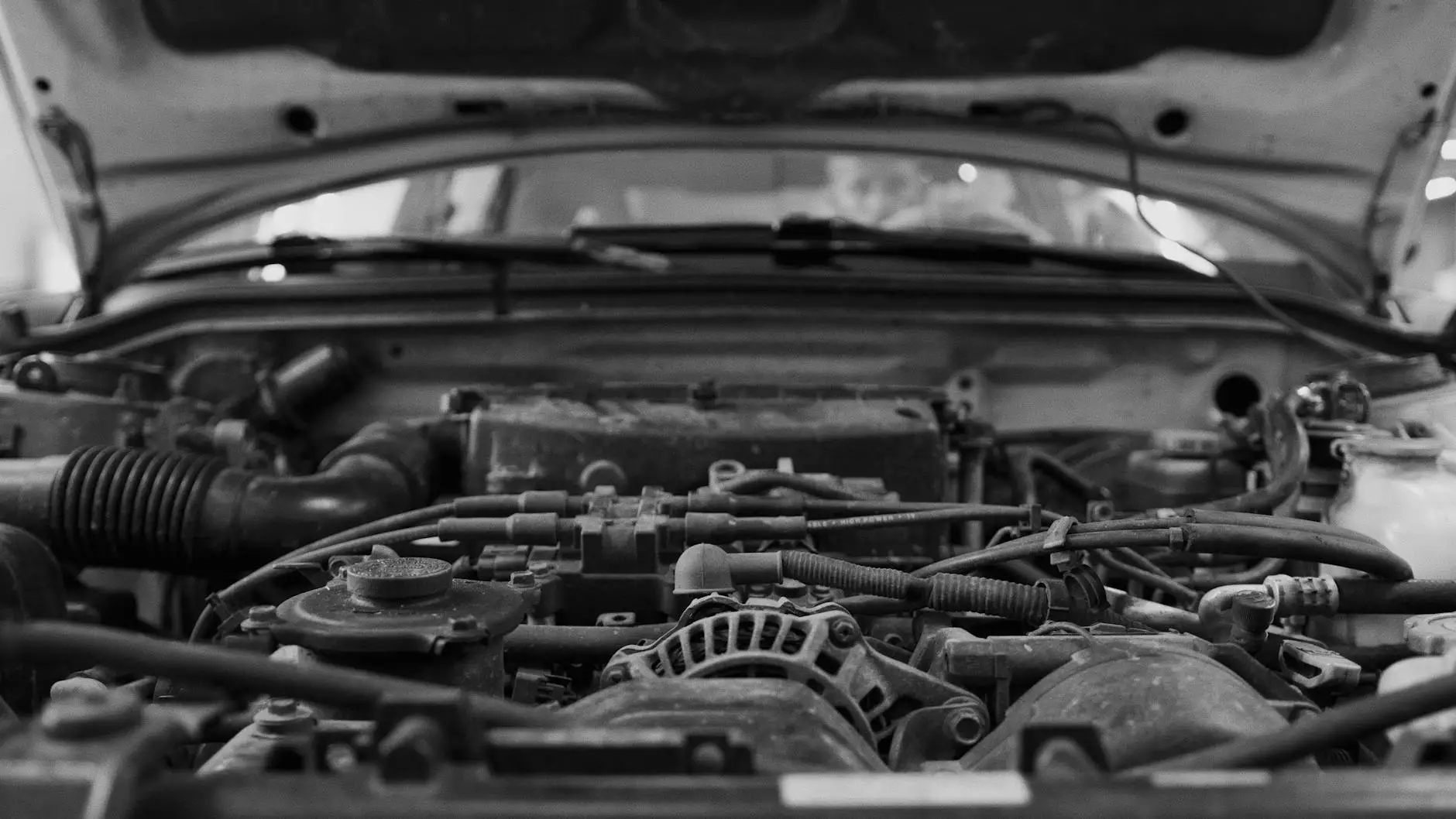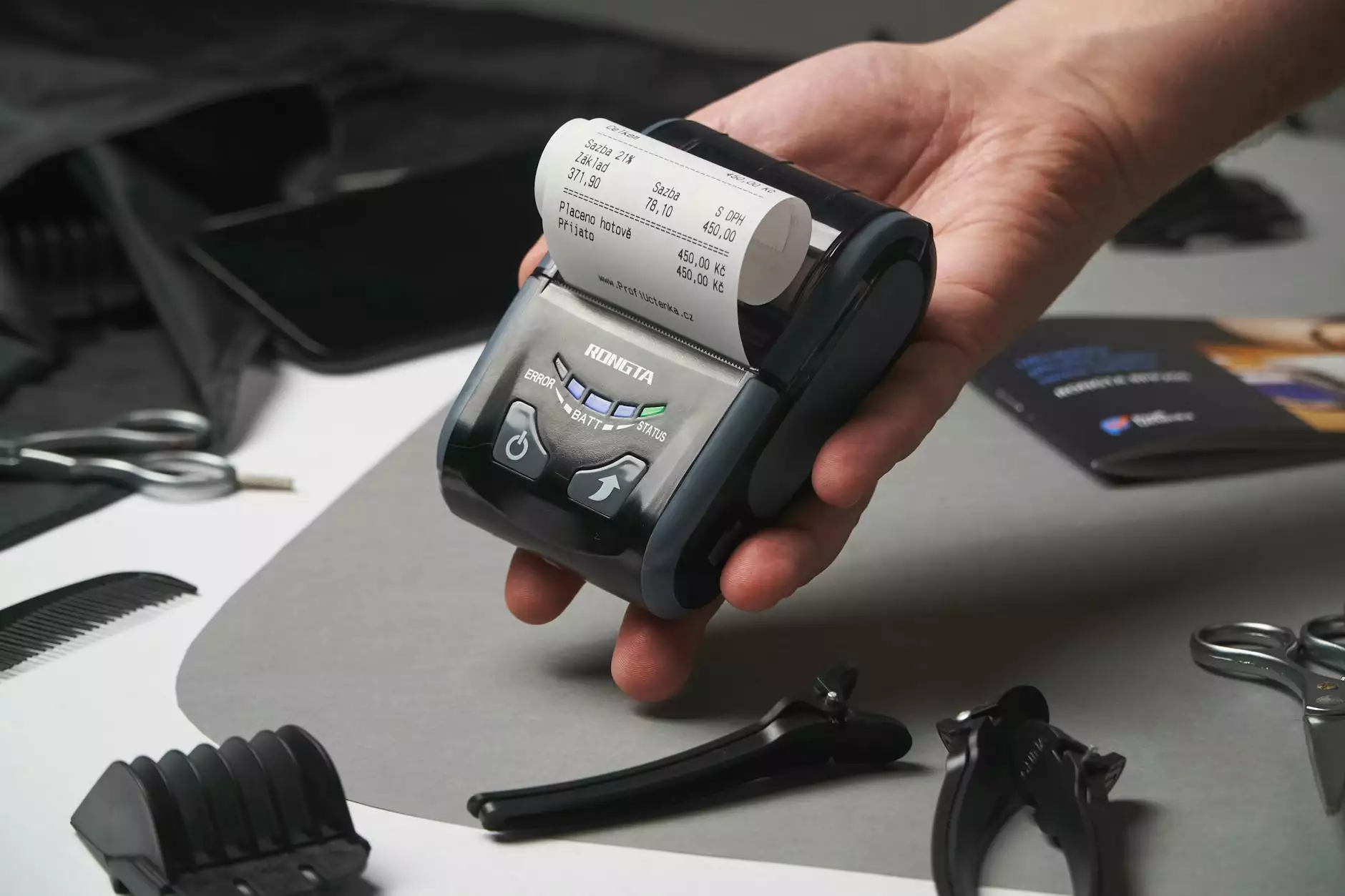The Ultimate Guide to Cloth Label Machines

The demand for cloth label machines is on the rise, especially as businesses seek to personalize their products and improve branding. In this detailed guide, we will explore what cloth label machines are, their benefits, various types, and how they can significantly boost your business operations.
Understanding Cloth Label Machines
A cloth label machine is a specialized device used in the production of fabric labels for various applications, including clothing, home textiles, and other fabric goods. These machines combine innovative printing technologies with advanced materials to create durable, high-quality labels that can withstand washing, wearing, and fraying.
Components of a Cloth Label Machine
Most cloth label machines have several essential components that ensure efficient operation:
- Printing Head: This is where the actual printing occurs. Various technologies, such as thermal transfer or inkjet, are used depending on the machine's design.
- Control Panel: An intuitive interface allows operators to choose settings, adjust print size, and even design labels directly on the machine.
- Roll Holder: This component holds the fabric roll, guiding it through the machine during the printing process.
- Cutter: An integrated cutting system that ensures each label is cut to the desired size.
- Drying System: Essential for drying the printed ink to prevent smudging and ensure a clean finish.
Benefits of Using Cloth Label Machines
Investing in a cloth label machine provides numerous advantages, particularly for businesses engaged in fashion, textiles, and related industries:
Cost-Effective Production
One of the most significant benefits is cost-effectiveness. By bringing the production of labels in-house, businesses can cut costs associated with outsourcing. This allows for greater flexibility in changing designs or sizes without incurring extra fees.
Customization and Branding
Cloth label machines allow for unlimited customization options. Companies can print their logos, brand names, and care instructions all on one label, thus enhancing brand visibility and consumer recognition. This personalization can lead to increased customer loyalty and a stronger brand identity.
Quality and Durability
Labels produced by cloth label machines are designed to be durable and resistant to various factors like washing, ironing, and exposure to elements. High-quality labels maintain their appearance and information over time, which is crucial for consumer satisfaction.
Efficient Production Times
With state-of-the-art technology, cloth label machines operate quickly and efficiently. This speeds up the manufacturing process, ensuring that products are ready for market faster than ever before. Businesses can react promptly to trends and consumer demand, giving them a competitive edge.
Types of Cloth Label Machines
There are different types of cloth label machines, each suited for specific applications and fabric types:
Inkjet Cloth Label Machines
These machines use inkjet technology to print vibrant designs on fabric. They are incredibly versatile and can print on a wide variety of fabrics. Ideal for short-run production and custom designs, inkjet machines are popular among small and medium-sized enterprises.
Thermal Transfer Label Printers
These printers utilize heat to transfer ink from a ribbon onto the label material. This method is favored for its durability and high-quality output. Thermal transfer printers are perfect for producing labels that need to endure the wear and tear of everyday use.
Embroidery Machines
While primarily used for decorative purposes, embroidery machines can also create fabric labels. These machines stitch designs directly onto cloth, producing a high-quality, textured result that conveys luxury and craftsmanship.
Choosing the Right Cloth Label Machine for Your Business
Selecting the appropriate cloth label machine depends on several factors including:
Production Volume
Consider how many labels you need to produce. Large-scale operations might benefit from high-speed, automated machines, whereas smaller operations may find that a compact, more versatile unit meets their needs.
Fabric Type
The type of fabric you work with can influence your decision. Different machines handle various types of materials, so it's essential to choose one that suits your specific production requirements.
Budget
Investing in machinery can be costly. Evaluate your budget and consider both the initial investment and the ongoing operational costs to ensure that you choose a machine that makes financial sense for your business.
Technical Support and Training
Lastly, consider the level of technical support that comes with the machine and whether training is provided. Quality support can significantly smooth the transition and minimize downtime.
Integrating Cloth Label Machines into Your Business Workflow
To maximize the potential of your cloth label machine, it’s vital to integrate it seamlessly into your existing workflow:
Streamlining Operations
Integrate your cloth label production into the larger manufacturing process. Assess how labels fit into your production line and establish workflows that minimize downtime and increase efficiency.
Staff Training
Invest in training for your staff. Understanding how to operate the machine efficiently can prevent operational hiccups and maximize output quality.
Regular Maintenance
Schedule routine maintenance to ensure the machine operates correctly. Proper maintenance can prevent unexpected breakdowns and extend the lifespan of the equipment.
The Future of Cloth Label Machines
The industry for cloth label machines is evolving with advanced technologies and sustainable practices that are shaping the future. Innovations such as eco-friendly inks, automated fabric cutting, and digital printing are becoming more prevalent.
Sustainability Trends
As businesses become more aware of environmental impacts, there is a push towards eco-friendly labeling options. Manufacturers are now producing machines that utilize biodegradable materials and inks, which cater to environmentally conscious consumers.
Technological Advances
Technological advancements in software and hardware will continue to streamline operations further, enhance print quality, and reduce waste. Keeping abreast of these trends will be essential for businesses looking to maintain a competitive edge.
Conclusion
The world of cloth label machines has much to offer for businesses looking to enhance their branding, efficiency, and product quality. By understanding the machines' functionalities, benefits, and future trends, companies can make informed decisions that align with their business objectives.
For more information on purchasing and utilizing cloth label machines effectively, visit Durafast Label. Their expertise in printing services and electronics can guide you to the right equipment tailored to your business needs.
FAQs About Cloth Label Machines
1. What is the average cost of a cloth label machine?
The cost can vary widely based on the type and functionality of the machine, ranging from a few hundred to several thousand dollars.
2. Can cloth label machines print on all types of fabric?
Most modern cloth label machines are versatile and can print on a variety of fabrics, but it's important to check the manufacturer's specifications for each machine.
3. How long do printed labels last?
Durability depends on the quality of the materials and the printing technology used, but high-quality labels can last several years, even with frequent washing.
4. Is training necessary for operating a cloth label machine?
While some machines are user-friendly, training can significantly improve efficiency and reduce mistakes. It’s advisable to have training to get the best results.
5. What maintenance is required for cloth label machines?
Regular cleaning, replacing consumables (like ribbons for thermal printers), and periodic technical check-ups are essential for keeping machines in good working condition.









